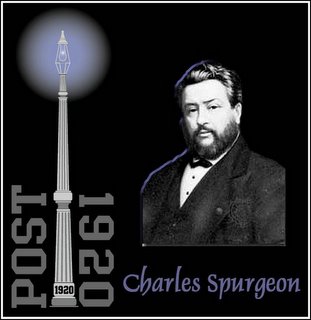
It cannot be said of Charles Spurgeon that he did not name names when rebuking the error of his day. He certainly did name names, and sometimes with a very sharp rebuke, but when he did this he was neither flippant nor careless. Spurgeon was very measured in such matters and this was because he was a man of principle. He understood that if a rebuke was ever to be rendered against an erring brother, then such communication would need to be purposeful rather than recreational. Spurgeon’s description of this principle is clearly laid out in his Morning and Evening devotion for November 29th.
“Thou shalt not go up and down as a talebearer among thy people … Thou shalt in any wise rebuke thy neighbour, and not suffer sin upon him.” Leviticus 19:16, 17
Tale-bearing emits a threefold poison; for it injures the teller, the hearer, and the person concerning whom the tale is told. Whether the report be true or false, we are by this precept of God’s Word forbidden to spread it. The reputations of the Lord’s people should be very precious in our sight, and we should count it shame to help the devil to dishonour the Church and the name of the Lord. Some tongues need a bridle rather than a spur. Many glory in pulling down their brethren, as if thereby they raised themselves. Noah’s wise sons cast a mantle over their father, and he who exposed him earned a fearful curse. We may ourselves one of these dark days need forbearance and silence from our brethren, let us render it cheerfully to those who require it now. Be this our family rule, and our personal bondSpeak evil of no man.
The Holy Spirit, however, permits us to censure sin, and prescribes the way in which we are to do it. It must be done by rebuking our brother to his face, not by railing behind his back. This course is manly, brotherly, Christlike, and under God’s blessing will be useful. Does the flesh shrink from it? Then we must lay the greater stress upon our conscience, and keep ourselves to the work, lest by suffering sin upon our friend we become ourselves partakers of it. Hundreds have been saved from gross sins by the timely, wise, affectionate warnings of faithful ministers and brethren. Our Lord Jesus has set us a gracious example of how to deal with erring friends in his warning given to Peter, the prayer with which he preceded it, and the gentle way in which he bore with Peter’s boastful denial that he needed such a caution.
Such a deliberate and purposeful attitude concerning the rebuke of an errant brother is indeed manly, brotherly, Christlike and under God’s blessing. Such manliness must always be preferred to the dainty morsels of the talebearer.
